
Shiv Sena was a right-wing Marathi regionalist and Hindu ultranationalist political party in India founded in 1966 by Bal Thackeray, who was later succeeded by Uddhav Thackeray. Initially apolitical, the organisation was patronised by the then Chief Minister Vasantrao Naik who used it for curbing trade unions and maintain stranglehold of the Congress. The organisation at the same time carried out pro-Marathi nativist movement in Mumbai in which it agitated for preferential treatment for the Marathi people over migrants from other parts of India.
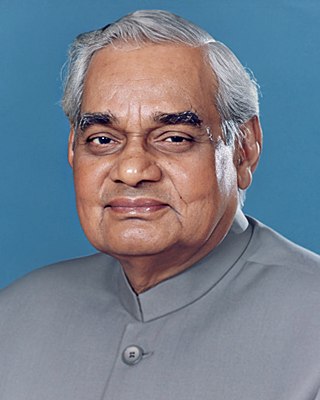
Atal Bihari Vajpayee was an Indian politician and poet who was Prime Minister of India, first for a term of 13 days in 1996, then for a period of 13 months from 1998 to 1999, followed by a full term from 1999 to 2004. He was the first non-Congress prime minister to serve a full term in the office. Vajpayee was one of the co-founders and a senior leader of the Bharatiya Janata Party. He was a member of the RSS, a Hindu nationalist volunteer organisation. He was also a Hindi poet and a writer.

The Bharatiya Janata Party is a political party in India and one of the two major Indian political parties alongside the Indian National Congress. Since 2014, it has been the ruling political party in India under the incumbent Prime Minister Narendra Modi. The BJP is aligned with right-wing politics and has close ideological and organisational links to the Rashtriya Swayamsevak Sangh (RSS), a far-right paramilitary organisation. Its policies adhere to Hindutva, a Hindu nationalist ideology. As of January 2024, it is the country's biggest political party in terms of representation in the Parliament of India as well as state legislatures.

Lal Krishna Advani is an Indian politician who served as the 7th Deputy Prime Minister of India from 2002 to 2004. He is one of the co-founders of Bharatiya Janata Party (BJP) and a member of the Rashtriya Swayamsevak Sangh (RSS), a right-wing Hindu nationalist volunteer organization. He is the longest serving Minister of Home Affairs serving from 1998 to 2004. He is also the longest serving Leader of the Opposition in the Lok Sabha. He was the prime ministerial candidate of the BJP during the 2009 general election.

The National Democratic Alliance is a right-wing Indian political group led by the Bharatiya Janata Party (BJP). It was founded on 15 May 1998 and currently controls the government of India as well as the government of 19 Indian states and one Union territory.
Sikander Bakht was an Indian politician belonging to the Bharatiya Janata Party (BJP) who served as the 15th governor of Kerala from 2002 until his death. He was elected as the Vice President of the BJP, served as its leader in the Rajya Sabha, and as a cabinet minister in the NDA government headed by Atal Bihari Vajpayee. In 2000, he was awarded Padma Vibhushan, the second highest civilian honour of the Government of India.
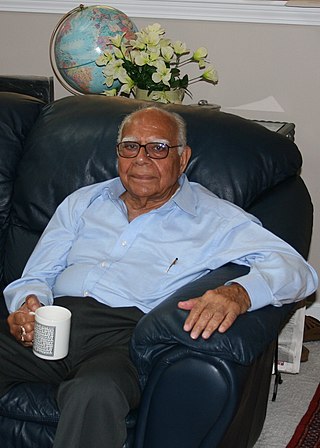
Ram Boolchand Jethmalani was an Indian lawyer and politician. He served as India's Union Minister of Law and Justice, as chairman of the Indian Bar Council, and as the president of the Supreme Court Bar Association.
The United Progressive Alliance was a political alliance in India led by the Indian National Congress. It was formed after the 2004 general election with support from left-leaning political parties when no single party got the majority.
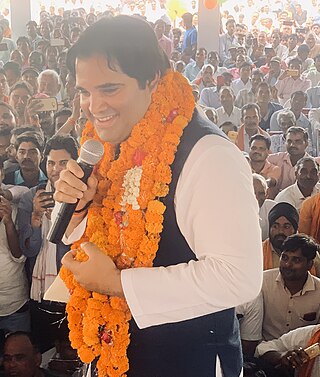
Feroze Varun Gandhi is an Indian politician who has been a three time Member of Parliament for Lok Sabha from the Pilibhit constituency. He is a member of the Bharatiya Janata Party and was inducted into Rajnath Singh's team in March 2012 as General Secretary. He belongs to the Nehru–Gandhi family, which has occupied a prominent place in the politics of India since a time before the country's independence in 1947.

Pramod Venkatesh Mahajan was an Indian politician from Maharashtra. A second-generation leader of the Bharatiya Janata Party (BJP), he belonged to a group of relatively young "technocratic" leaders. At the time of his death, he was in a power struggle for the leadership of the BJP, given the imminent retirement of its aging top brass.
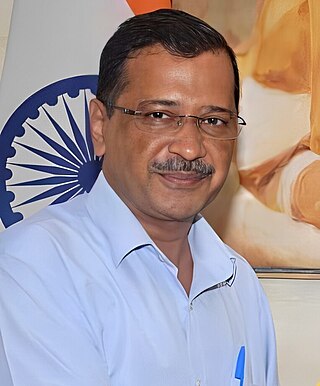
Arvind Kejriwal is an Indian politician, activist and former bureaucrat, who served as the 7th Chief Minister of Delhi. He previously was the chief minister from 2013 to 2014 and was serving since 2015. He is also the national convener of the Aam Aadmi Party (AAP) since 2012. He has represented the New Delhi constituency in the Delhi Legislative Assembly since 2015 and from 2013 to 2014.
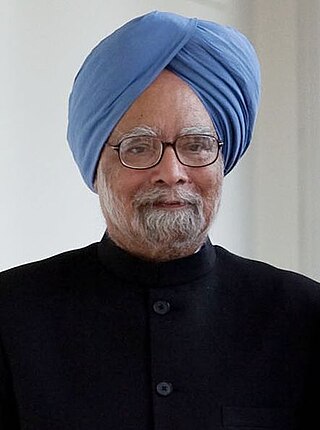
General elections were held in India in five phases between 16 April 2009 and 13 May 2009 to elect the members of the fifteenth Lok Sabha. With an electorate of 716 million, it was the largest democratic election in the world until being surpassed by the 2014 general election.
Rustom Khurshedji Karanjia was an Indian journalist and editor. He typically signed his reports as "R. K. Karanjia". He founded the Blitz, a weekly tabloid with focus on investigative journalism in 1941, and ran it for the next four decades. He also founded The Daily, a daily tabloid which was run by his daughter.
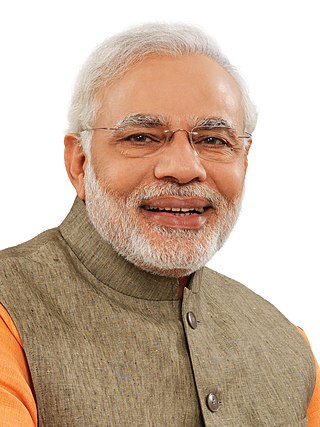
General elections were held in India in nine phases from 7 April to 12 May 2014 to elect the members of the 16th Lok Sabha. With 834 million registered voters, they were the largest-ever elections in the world until being surpassed by the 2019 election. Around 23.1 million or 2.71% of the total eligible voters were aged 18–19 years. A total of 8,251 candidates contested the 543 elected Lok Sabha seats. The average election turnout over all nine phases was around 66.40%, the highest ever in the history of Indian general elections until 2019 election.

The cash-for-votes scandal was an Indian political scandal allegedly masterminded by then Bharatiya Janata Party politician Sudheendra Kulkarni in which the United Progressive Alliance, the majority-holding parliamentary-party alliance of India led by Sonia Gandhi, allegedly bribed Bhartiya Janta Party MPs in order to survive a confidence vote on 22 July 2008. The vote in the Lok Sabha arose after the Communist Party of India (Marxist)-led Left Front withdrew support from the government, who wanted to pursue an Indo-US nuclear deal.
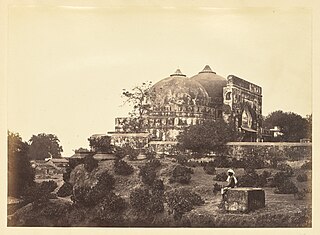
The demolition of the Babri Masjid was carried out on 6 December 1992 by a large group of activists of the Vishva Hindu Parishad and allied organisations. The 16th-century Babri Masjid in the city of Ayodhya, in Uttar Pradesh, India, had been the subject of a lengthy socio-political dispute, and was targeted after a political rally organised by Hindu nationalist organisations turned violent.
The Scorpène deal scam was an Indian bribery scandal, in which USD 175 million were alleged to have been paid to the Government of India’s defence procurement decision makers by Thales, a French defence and aerospace company. In 2005, the Minister of Defence, Pranab Mukherjee, approved the deal to build Scorpène-class submarines, which was worth US$3 billion with Thales. However, in 2008, the Central Bureau of Investigation (CBI), found no evidence of corruption in the deal. Scorpène-class submarines are now being built in India under a technology transfer agreement that was part of that contract.
Blitz was a popular investigative weekly tabloid newspaper or newsmagazine published and edited by Russi Karanjia from Bombay. Started in 1941, it was India's first weekly tabloid and focussed on investigative journalism and political news. It was published in English, and with editions in Hindi, Urdu and Marathi languages.
Conservatism in India refers to expressions of conservative politics in India. Conservative-oriented political parties have included the Bharatiya Janata Party, the Congress Nationalist Party, and the Uttar Pradesh Praja Party. In addition, a number of figures within the Indian National Congress, such as Sardar Vallabhbhai Patel were conservative.
Inking or ink throwing is the act of throwing ink at people, or cars. It has been used as a form of political protest in India.













